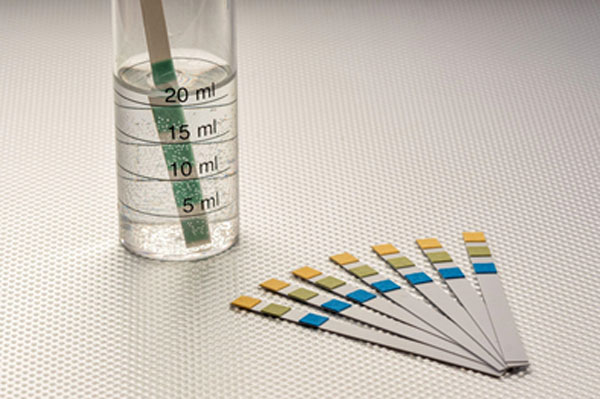Water Hardness Removal Systems
 Have you noticed chalky mineral deposits forming on your showerhead or kitchen faucet? Do you use more detergent, soap, or shampoo than you expect? The signs of hard water are unmistakable, especially if you have experienced the difference in taste and comfort soft water provides. If you have hard water running through the pipes of your home, a water softener is just what you need to protect your home fixtures, the health of your skin, and the purity of your water.
Have you noticed chalky mineral deposits forming on your showerhead or kitchen faucet? Do you use more detergent, soap, or shampoo than you expect? The signs of hard water are unmistakable, especially if you have experienced the difference in taste and comfort soft water provides. If you have hard water running through the pipes of your home, a water softener is just what you need to protect your home fixtures, the health of your skin, and the purity of your water.
What Is Hard Water?
“Hard” water contains high amounts of dissolved metals, including magnesium and calcium. Keep in mind that these minerals aren’t added by your city. Instead, the “hardness” of your water indicates your town’s reliance on groundwater pumped from wells, reservoirs, rivers, and streams. About 37 percent of water used in the United States for residential and business use comes from these underground aquifers, and over 90 percent of rural communities rely exclusively on groundwater.
While some small towns and cities do their best to soften their potable water (especially in communities with particularly hard water), even they don’t get rid of most of the dissolved minerals. That’s where home water softening can help finish the job.
Is Hard Water Dangerous?
There is no evidence that hard water causes bodily harm. There are actually some health benefits to drinking hard water, as calcium and magnesium are necessary for muscle, nerve, and bone health. Even over long periods, the worst you can expect is dry and uncomfortable skin.
The real danger comes from the damage that calcium, potassium, and magnesium build-up can cause to your water fixtures, faucets, and pipes. Without constant cleaning and scale removal, you will see your water pressure plummet from clogging. Any appliances that rely on water such as your washer, your dishwasher, and your water heater can also be affected, which may lead to expensive repair bills.
How Does a Water Softener Work?
Hard water can be “softened” in several ways. The most common solution is through the introduction of sodium chloride (or salt). In essence, the specialized salt binds to the minerals contained in the water, pumping the treated water into your pipes free of metals and minerals. Over time, the salt is dissolved, requiring a refill. Fortunately, you can get water-softening salt at almost any supermarket.
Newer methods of water softening that don’t require salt include a Template Assisted Crystallization (or TAC) system. These don’t “soften” water, per se. Instead, they crystalize (or condition) the metals and minerals in hard water, making them unable to gather on your pipes.
Remove Hard Water from Your Dover Home or Business
Looking for an affordable solution to your hard water problems? The experienced technicians at Martin’s Water Treatment serve dozens of communities in Delaware and Maryland, including Somerset County, MD; New Castle County, DE; and more. Give us a call today and save your home from mineral build-up and expensive appliance replacements!
